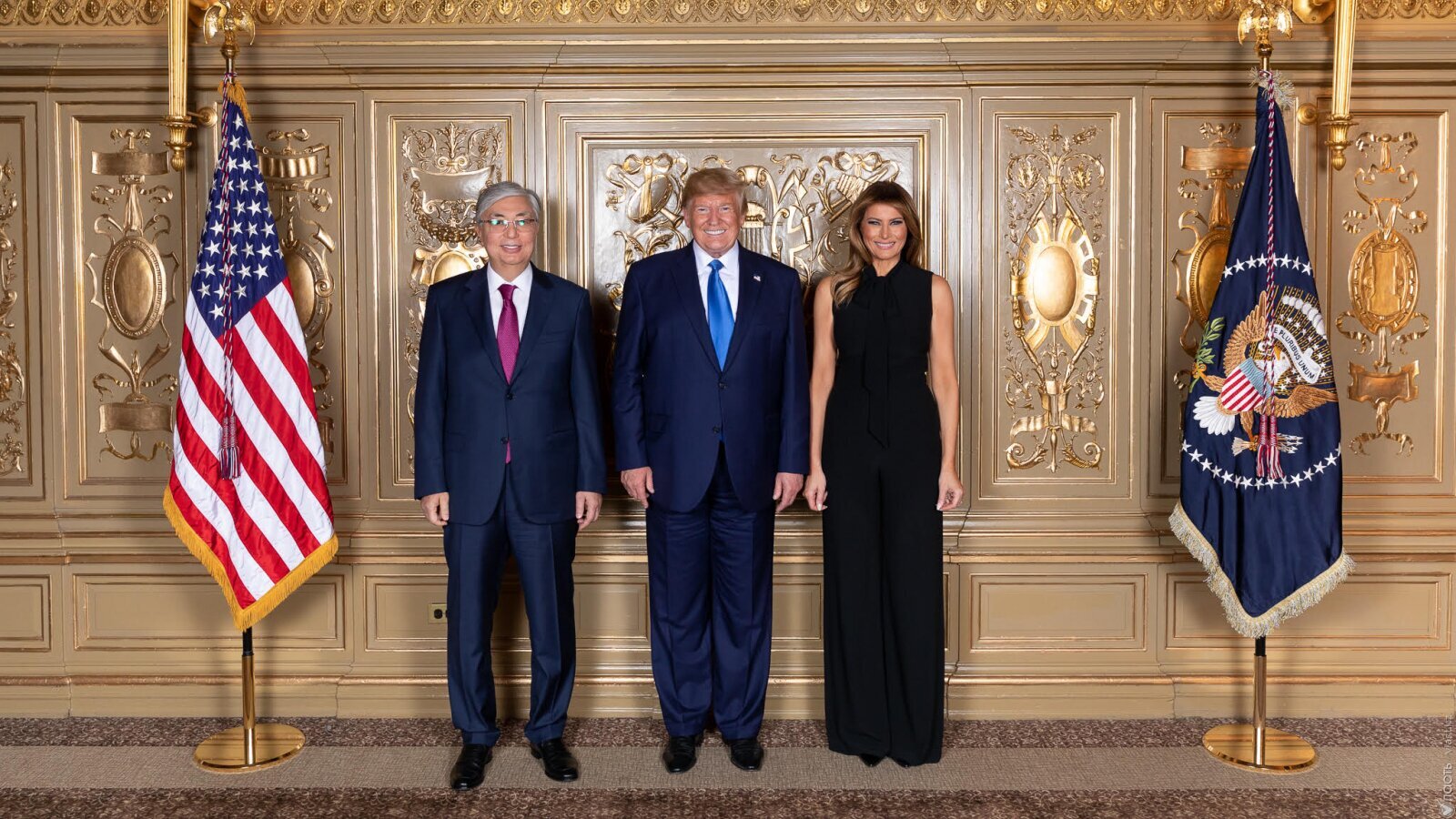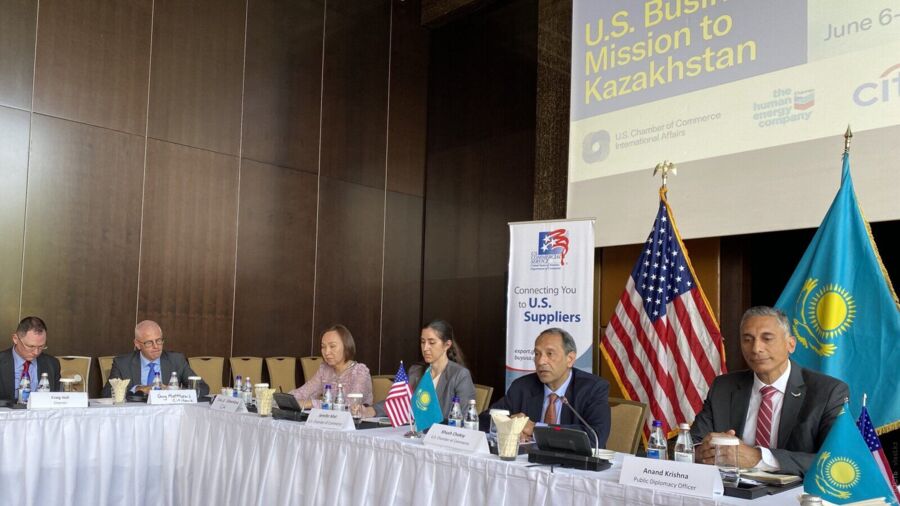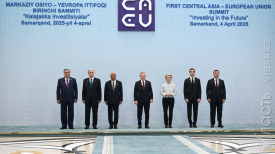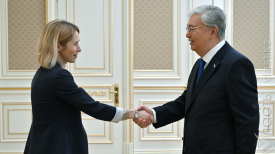The United States introduced fresh tariffs towards a vast number of countries on April 3, including a 27% duty on goods imported from Kazakhstan, far more than the rate imposed on other Central Asian countries. Tariffs for Uzbekistan, Turkmenistan, Tajikistan and Kyrgyzstan were set at 10%.
Читайте этот материал на русском.
Experts interviewed by Vlast do not expect that US tariffs will have a strong impact on Kazakhstan’s economy. Most of Kazakhstan’s exports to the US include raw materials, which could be excluded from US President Donald Trump's decree. Experts also argue that commodity prices could hardly be affected in the near future. Yet, one of the experts warns that this trade war could lead to a global economic crisis in the future.
According to the Statistics Committee, by the end of 2024, Kazakhstan’s trade turnover with the US amounted to $4.2 billion, a 4% increase compared to 2023. Kazakhstan’s exports grew by 30.6% to $2 billion, while imports amounted to $2.2 billion.
The US imports mostly raw materials from Kazakhstan: crude oil, uranium, silver, ferroalloys, wheat gluten and other goods. The ministry of trade reported that 92% of the supplied raw materials will fall under an exception clause introduced in the US presidential decree.
“The new tariff measures will only affect 4.8% of the total volume of Kazakhstan's exports to the US. The government has started consultations with the US side to discuss the possibility of not applying additional duties to Kazakhstan,” the ministry of trade told the press.
According to the ministry, the affected volume includes exports of phosphorus, ferrosilicon, lenses, wheat gluten, and ammonium nitrate, worth around $95 million overall.
Yernar Serik, the trade and investment analyst behind the Tradereport.kz Telegram channel, noted that the introduction of tariffs could harm the Kazphosphate company, which supplies 6% of the phosphorus it produces to the US, as well as BioOperations, a company that sells 40% of its gluten to the US.
Abzal Narymbetov, a business analyst who runs the Energy Analytics Telegram channel, argued that even if the US imposed tariffs on all export goods from Kazakhstan, the oil sector would hardly notice their effect.
“The US accounts for only about 2% of Kazakhstan’s oil exports, and the US share in Kazakhstan’s oil revenue structure is 3%. These are insignificant volumes that Kazakhstan can compensate for by shipping oil to other countries. The main consumers of Kazakhstan's oil are Italy, France, Greece, and the Netherlands,” Narymbetov told Vlast.
The uranium industry would suffer a blow: raw uranium exports from Kazakhstan account for 7% US imports, while enriched uranium accounts for 70%. Uranium trade, however, is listed among the exceptions to the new tariff policies.
Serik emphasizes that other Asian economies, primarily China, India, South Korea, and Japan, will be most affected by the US tariffs.
“If it becomes unprofitable for China to export its goods to the US, especially consumer goods, there could be an overstock issue. Prices for Chinese products could then fall, which would be convenient for us. But that means that there may be more Chinese goods on the Kazakhstani market, which will hit local producers,” Serik told Vlast.
Narymbetov added that the US tariffs are unlikely to have a noticeable impact on the global oil market, especially on its price. Therefore, even indirect consequences for Kazakhstan’s oil-dependent economy are also unlikely.
Until the US changes its oil consumption structure, it will continue to buy oil even after the tariffs are introduced. The US can only meet its domestic demand with its own shale oil, but this is feasible only if oil prices are above $50-60. Otherwise, shale producers will freeze their projects and stop production.
“While Trump promises that oil prices will drop to $50, during his first term, on the contrary, they grew. Market mechanisms work in the US. Plus, there are more projects being shut than ones being launched around the globe. In my opinion, this will keep oil in the range of $70, plus or minus $10,” Narymbetov said.
Yuliy Yusupov, the director at the Tashkent-based Center for Economic Development, argued that the new tariffs will not lead to direct consequences on the countries of Central Asia. The region trades much more with China, Europe, and Russia. At the same time, unlike other experts, he said that the global trade war could have serious indirect effects.
“It could lead to a global economic crisis. And this will inevitably cause a drop in commodity prices, which our countries mainly trade, and a general decline in investment activity in our region,” the economist told Vlast.
Serik said that now it is necessary to monitor the dynamics of the US bilateral negotiations with all countries. A final decision on duties has not yet been made and it is quite possible that the Trump administration may make concessions.
Поддержите журналистику, которой доверяют.









